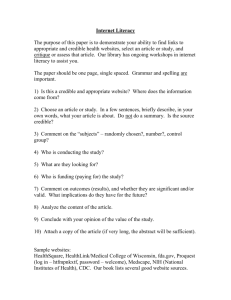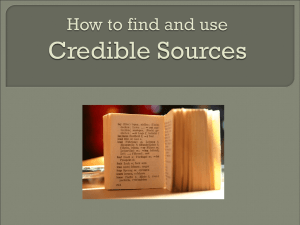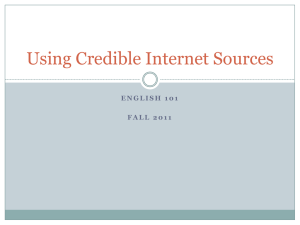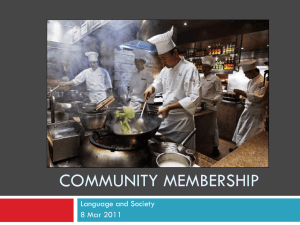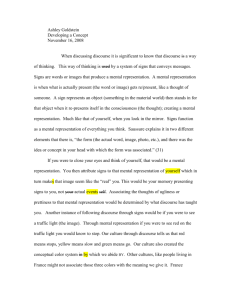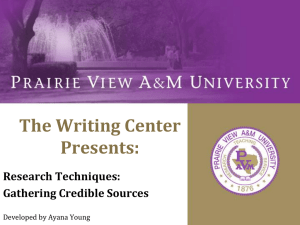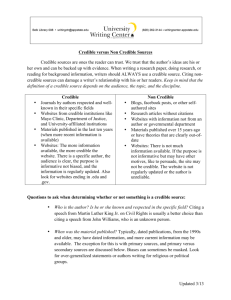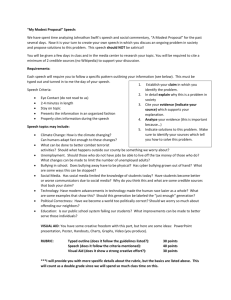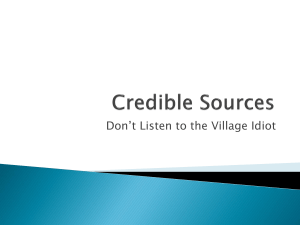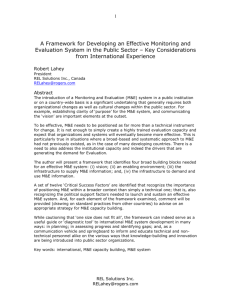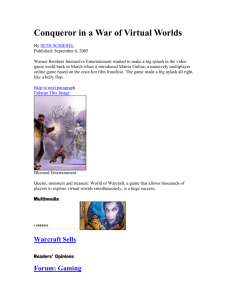Week2writingassignment
advertisement
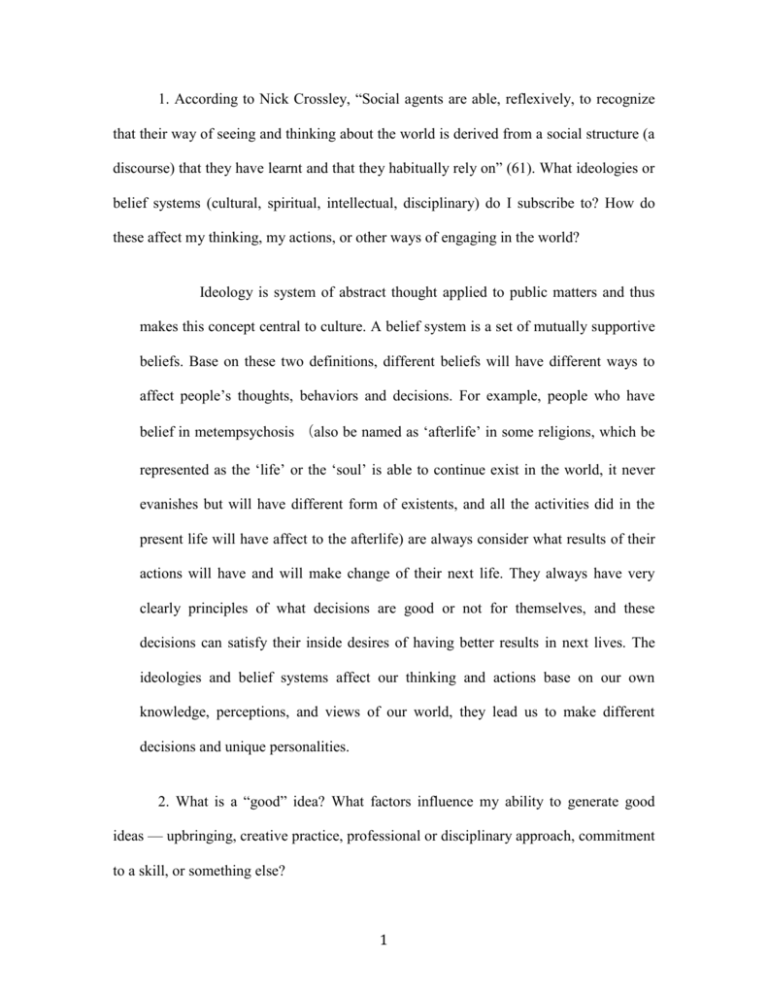
1. According to Nick Crossley, “Social agents are able, reflexively, to recognize that their way of seeing and thinking about the world is derived from a social structure (a discourse) that they have learnt and that they habitually rely on” (61). What ideologies or belief systems (cultural, spiritual, intellectual, disciplinary) do I subscribe to? How do these affect my thinking, my actions, or other ways of engaging in the world? Ideology is system of abstract thought applied to public matters and thus makes this concept central to culture. A belief system is a set of mutually supportive beliefs. Base on these two definitions, different beliefs will have different ways to affect people’s thoughts, behaviors and decisions. For example, people who have belief in metempsychosis (also be named as ‘afterlife’ in some religions, which be represented as the ‘life’ or the ‘soul’ is able to continue exist in the world, it never evanishes but will have different form of existents, and all the activities did in the present life will have affect to the afterlife) are always consider what results of their actions will have and will make change of their next life. They always have very clearly principles of what decisions are good or not for themselves, and these decisions can satisfy their inside desires of having better results in next lives. The ideologies and belief systems affect our thinking and actions base on our own knowledge, perceptions, and views of our world, they lead us to make different decisions and unique personalities. 2. What is a “good” idea? What factors influence my ability to generate good ideas — upbringing, creative practice, professional or disciplinary approach, commitment to a skill, or something else? 1 The word of “good” is defined as a positive vocabulary in many terms. When we using it as an adjective, it usually represents as positive, desirable, quality, excellent, satisfied, and superior to the average. Depending on these definitions, a “good” idea can be considered as a concept with correct usage, creative thesis, and professional progress; moreover, it must be accepted and satisfied by its target group. For example, when we design something, a good main idea of the content is usually what we need to focus on. To achieve this goal, and as designers, we cannot only simply say it is “good”, but also need to considering the target user’s feedback. The good idea must involve in both designers and users’ desires, and finally judged by their experiences of the product. The good idea sometimes may be not perfected to its original purposes, but it must be the most suitable decisions for the entire progress. 3. What artist, designer, creative professional or discourse community has influenced my academic interests or my creative work? What is it about their work that makes them appealing to me? I have interested in virtual world since I was a kid. The virtual world always is used to represent video games, fiction stories or anything that not exist in reality. But I have different views of this term, and I like to treat it as a way that allows our human beings to have the experiences of being creators rather than creatures in this world. Depends on this factor, the discourse community that influences me the most is ‘Blizarrd’, the most famous entertainment company in 2 the world. One of their greatest products is ‘World of Warcraft’, a massively multiplayer online role-playing game. Although many people only see it as a normal PC game, it gives me a different view of how to achieve my ‘fantasy’ dream in a different way. The main contents of ‘World of Warcraft’ are based on the story of Blizarrd’s previous work ‘Warcraft’. It has its own and unique storylines, histories, races, geographies, and cultures. All these elements combined together and create the world in digital way, and this process is just same as the way of the creator creates our real world. This kind experience is the most enjoyable thing for me, and affects my feeling of doing all my projects in SIAT. 4. Following through on John Ruskin’s ideas, Sharples states, “...there can be no ideal view of the world, free of perception, only different ones. There is no single truth for a reader to unpack from the text” (156). How do I know what I know is true? Who or what do I define as a credible source? The word ‘true’ may refer to the state of being in accord with fact or reality. This is means if we want to determine something that is truth or not, we need to base on the real exist facts that relate to the both the thing and ourselves. People have different perceptions and views of the world by different cultures, beliefs, religions, and knowledge; all these factors will affect our judgments or decisions of what is true, and finally leading to different understanding of truth. For example, If I want to learn the history of a country in a particular time, reading the related history record usually is where I start, but only history record 3 may not reliable enough for discovering the whole facts happened in that time, then I need to find more credible source to proof or compare with the information I got from records. Then I still need to consider the cultures, economics and politics of that time to support the arguments or conclusions I made, after that I may way more close to the real truth. The word ‘credible’ refers to the objective and subjective components of the believability of a source or message (Wikipedia). According to this definition, for me, a credible source should be reliable enough to support my statement or the thesis of my topic. For example, if I am doing a research paper about culture differences, then the official documents and professional articles about different cultures will be my credible sources, and my own imaginations and personal understandings cannot be used as reliable arguments to my topic. 4
